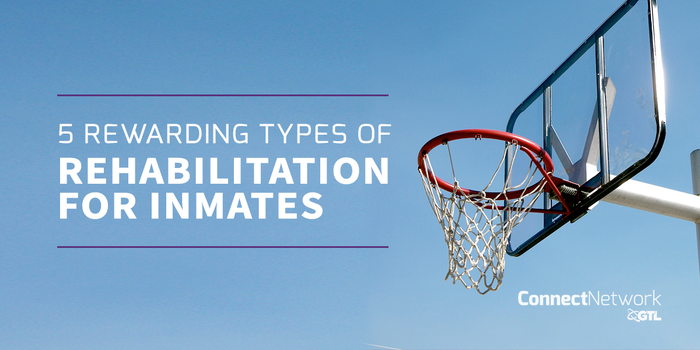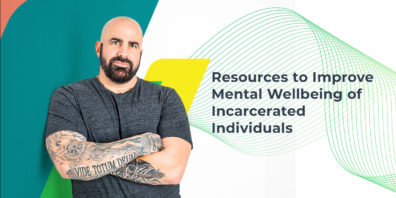5 Rewarding Types of Rehabilitation for Inmates
September 27, 2016
Providing rehabilitation for inmates offers countless benefits to the individual inmate as well as the community that inmate will re-enter upon his or her release.
The options for rehabilitation for inmates vary by facility, offense, and sentence length. Just like the cause of incarceration varies by inmate, the type of rehabilitation an inmate might respond to can also vary.
(Note: To learn about your loved one’s rehabilitation options, please contact their correctional facility directly and request more information.)
Some inmates may benefit from multiple kinds of rehabilitation. We put together a list of five of the most rewarding types of rehabilitation for inmates below.
1. Education Rehabilitation for Inmates
It has been proven time and time again that education programs in prison help to give inmates a second chance. In fact, inmates who participated in educational programs were 43% less likely to commit a crime and return to incarceration within three years than those who did not.
The statistics proving the value behind providing education programs in prison have helped change the landscape of educational offerings for inmates.
Positive outcomes for inmates who leave prison more educated than when they entered filter down into the community.
The extended family benefits, the local economy benefits when the ex-offender returns to work, and the taxpayers benefit when less people are incarcerated.
This, among other data, prompted President Obama to institute The Second Chance Pell Pilot which will open up the opportunity for about 12,000 inmates to apply for Pell grants for the first time in nearly 24 years.
Oftentimes these inmate education programs cover functional skills (above and beyond traditional academic programs).
For example, inmates who haven’t had access to a computer or the internet in many years are at a disadvantage when attempting to return to the workforce. Computer training programs have become a crucial piece of re-entry educational programs.
Education programs in prison are helping give the power of knowledge to inmates. With this power, overcoming the past and enjoying a better quality of life are two very achievable goals.
2. Employment Rehabilitation for Inmates
Inmates who have the opportunity to engage in prison work programs while incarcerated have an easier time getting work once they are released.
The inability to find and maintain work is a main factor in recidivism across the nation. When former inmates re-enter society without marketable skills, a domino effect occurs that often times leads to new offenses.
Breaking the cycle relies on becoming a productive member of society through gainful employment. Being able to support oneself is beneficial financially and mentally.
For a person newly re-entering society, the self-esteem and fulfillment that can come from working hard plays a big role in lessening criminal behavior.
During prison, many inmates are given an opportunity to participate in work programs. These programs offer a consistent way to prepare for work in society. Punctuality, responsibility, deadlines, accountability and other skills are learned through taking part.
The benefits of prison work programs go much deeper than just job training.
3. Counseling Rehabilitation for Inmates
Prison Counselors play a significant role in rehabilitation for inmates. These criminal justice and mental health professionals provide guidance to inmates throughout the duration of their sentence.
The support a Prison Counselor provides will range by inmate. Most counselors can offer hands on counseling covering the following topics:
- vocational
- academic
- social
- personal
The goal is to provide rehabilitation for inmates that will help them consider new skills and new insight into their goals and motivations.
Additionally, inmates can seek counseling on issues like depression, stress or substance abuse. Sometimes this may come in a group form, or one on one.
In addition to the support provided by the staff, counseling for inmates can be obtained through many non-profit organizations.
For example, The Lionheart Foundation program offers prison inmates “encouragement and the necessary support to take stock of the life experiences that have propelled them into criminal activity, take responsibility for their criminal behavior, change lifelong patterns of violence and addiction, and build productive lives.”
This organization trains counselors, chaplains, volunteers and others to visit prisons and provide counseling services. Their work extends into youth prisons and the community as well.
Taking advantage of the counseling offered during prison is a positive step towards rehabilitation.
4. Wellness Rehabilitation for Inmates
Physical and mental wellness bring clarity and purpose to many inmates during their sentence.
Depending on the offerings in an individual facility, an inmate may be able to participate in programs like yoga, tai chi, or meditation. Practicing these kinds of mental and physical exercises are proven to provide long term benefits including stress/anger management among others.
Positivity can be a difficult trait to maintain during a prison sentence, but some prisons are offering programs to help bring a positive light into an inmate’s life. Programs like dog training, culinary classes, gardening and more offer inmates opportunities to practice fulfilling skills that make a measurable difference.
Making good nutrition choices with meals in prison can also be difficult. But with effort, a healthy diet can also be maintained.
5. Community Rehabilitation for Inmates
Rehabilitation for inmates continues throughout an inmate’s life, even after they have left the system. Re-entering society and taking steps to join the community is a necessary piece of the rehabilitation process.
Adjusting to life after prison successfully has many variables. Having a support system within the community helps an ex-offender stay an ex-offender.
Getting involved in the community creates accountability in the form of communal obligations. Feeling a sense of belonging is invaluable, whether it be through:
- church
- volunteering
- social groups
- or another form.
The newly built support system relies on the ex-offender as he/she relies on it. This leads to more positive interactions and less opportunity for criminal behavior.
Additionally, the relationships built within these community groups can lead to job opportunities—a crucial step for reentry to society and elimination of recidivism.
Have you experienced another form of rehabilitation for inmates that worked for you or your loved on? Please share it with us on Facebook.
Posted In: Blog




